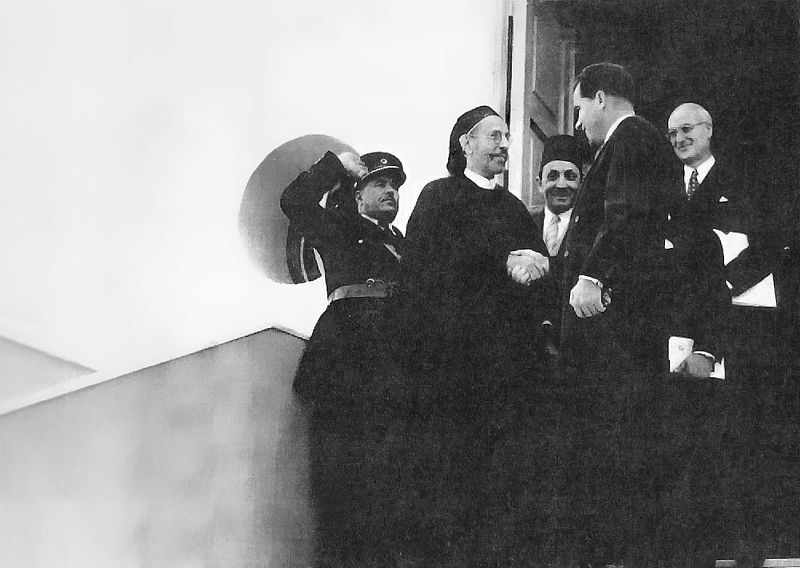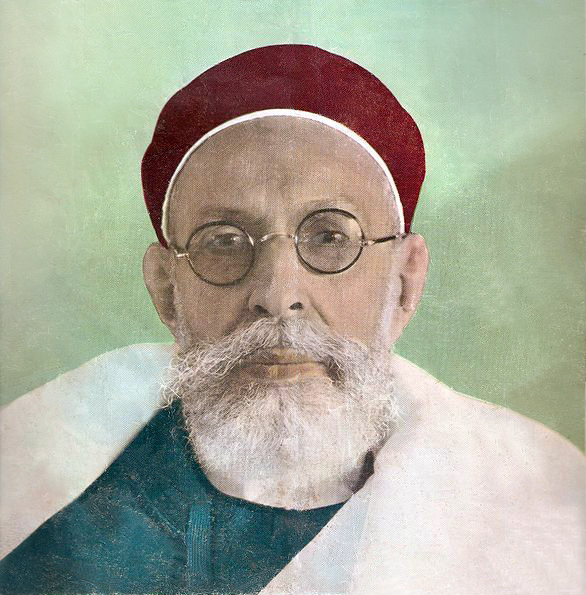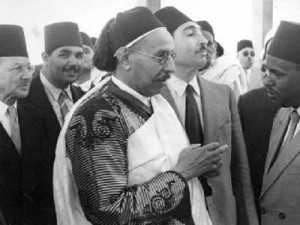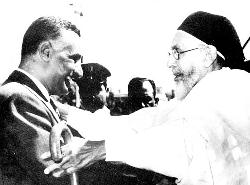<Back to Index>
- King of Libya Idris, 1889
PAGE SPONSOR
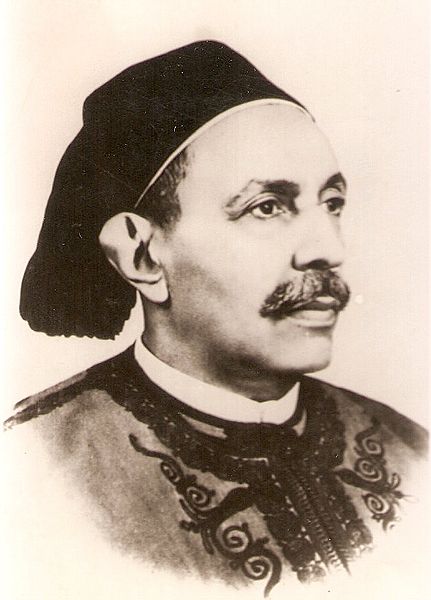
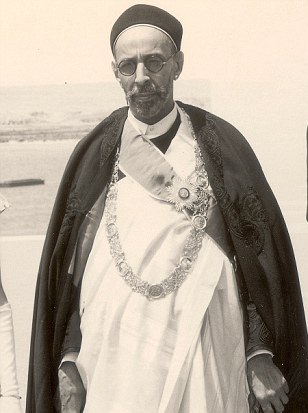
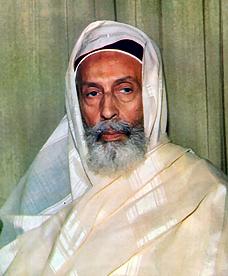
Idris, GBE (Arabic: إدريس الأول), (b. Sayyid Muhammad Idris bin Muhammad al-Mahdi as-Senussi 12 March 1889 – 25 May 1983), was the first and only king of Libya, reigning from 1951 to 1969, and the Chief of the Senussi Muslim order.
Born at Al-Jaghbub, the headquarters of the Senussi movement, the son of Sayyid Muhammad al-Mahdi bin Sayyid Muhammad al-Senussi and his fifth wife Aisha bint Ahmad al-Syrte, Idris was a grandson of Sayyid Muhammad bin 'Ali as-Senussi, the founder of the Senussi Muslim sufi order. He became Chief of the Senussi order in 1916 following the abdication of his cousin Sayyid Ahmed Sharif es Senussi. He was recognized by the British under the new title Emir of the territory of Cyrenaica, a position also confirmed by the Italians in 1920. He was also installed as Emir of Tripolitania on 28 July 1922.
Idris spent the early part of his career attempting to negotiate independence for Cyrenaica. In 1922, following the Italian military campaigns against Libya, he went into exile. Egypt then served as his base in a guerrilla war against the colonial Italian authorities.
During World War II, Idris supported the United Kingdom and brought the Cyrenaican nationalists to fight alongside the Allies against the Axis. With the defeat of the German and Italian forces led by Erwin Rommel, he was finally able to return to his capital, Benghazi, as Emir of Cyrenaica and form an official government.
With British backing, Idris as-Senussi proclaimed an independent Emirate of Cyrenaica in 1949. He was also invited to become Emir of Tripolitania, another of the three traditional regions that now constitute modern Libya (the third being Fezzan). By accepting he began the process of uniting Libya under a single monarchy. A constitution was enacted in 1949 and adopted in October 1951. A National Congress elected Idris as King of Libya, and as Idris I he proclaimed the independence of the United Kingdom of Libya as a sovereign state on 24 December 1951.
From Benghazi, Idris led the team negotiating with the United Kingdom and the United Nations over independence, which was achieved on 24 December 1951 with the proclamation of the federal United Libyan Kingdom with Idris as king. In 1963 the constitution was revised and the state became a unitary state as the Kingdom of Libya.
To the chagrin of Arab nationalists at home and supporters of Pan - Arabism in neighboring states, Idris maintained close ties with the United Kingdom and the United States, even after the former intervened against Egypt during the 1956 Suez Crisis. Another threat to his kingdom was his failure to produce a surviving male heir to succeed to the throne. In 1956, Idris designated his brother's son, Hasan as-Senussi, as crown prince.
The economy prospered from its oil fields and the presence of the United States Air Force's Wheelus Air Base near
Tripoli, but the king's health began to falter and the crown prince
assumed a greater role in the government and from time to time acted as regent. On 4 August 1969 Idris signed an Instrument of Abdication in favor of Crown Prince Hasan as-Senussi, to take effect on 2 September that year.
On 1 September 1969, while Idris was in Turkey for medical treatment, he was deposed in a coup by a group of Libyan army officers under the leadership of Muammar al-Gaddafi. The monarchy was abolished and a republic proclaimed. The coup pre-empted Idris' abdication and the succession of his heir the following day.
From Turkey, he and the queen traveled to Kamena Vourla, Greece, by ship and went into exile in Egypt.
After the coup of 1969, Idris was placed on trial in absentia in the "Libyan People's Court" and sentenced to death in November 1971.
Idris died at the Sultan Palace in Dokki, Cairo, in 1983, aged 94. He was buried at Jannat al-Baqi, Medina, Saudi Arabia.
Although the king died in exile and most Libyans were born after his reign, during the 2011 Libyan uprising,
many demonstrators opposing Colonel Gadaffi used the old tricolor flag
of the monarchy and carried portraits of the king, especially in the
traditional Sanussi stronghold of Cyrenaica.
Idris
married five times. For
two short periods (1911 – 22 and 1955 – 58) Idris kept two wives,
marrying
his fifth wife with a view to providing a direct heir. Idris fathered
five sons and one daughter, none of whom survived childhood. He and
Queen Fatima adopted a daughter, Suleima, an Algerian orphan, who survived them.
